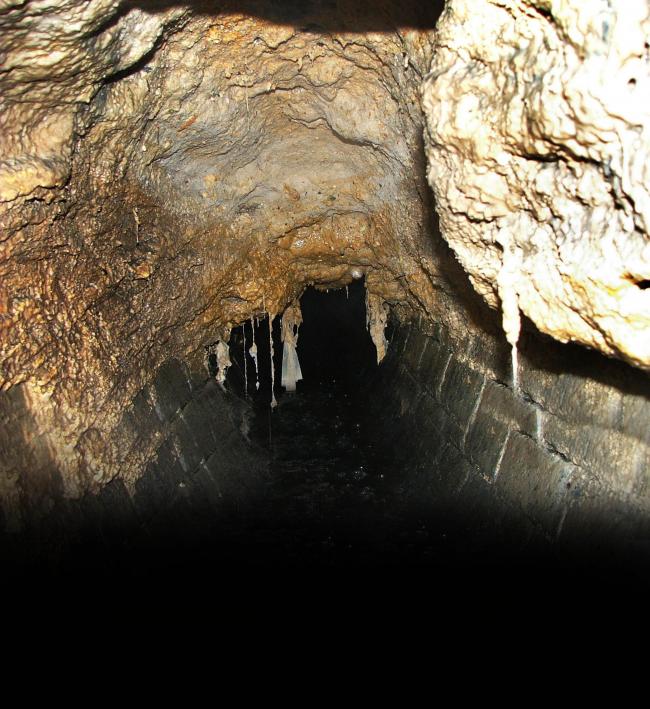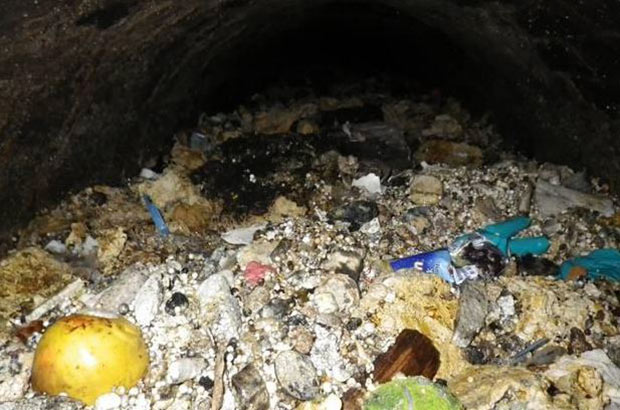‘Lazy’ takeaways blamed for causing fatbergs the size of DOUBLE DECKER buses under the streets of one of Oxford
Discovery made after water company officials commissioned a survey to find out why the city centre was such a "hotspot"

FATBERGS the size of double decker buses are clogging up the sewers under Oxford because 'lazy' fast food outlets aren't chucking away their cooking oil and fat properly.
Shocked Thames Water officials found that only one in 20 of the famous city's takeaways and restaurants have been disposing their cooking waste in the correct way - meaning enormous lumps of congealed fat are growing in the drains.
Inspectors visited 200 pubs, cafes, hotels and takeaways to find the cause of the vast underground build-ups as establishments where food is cooked and sold to the public are legally required to use effective "grease traps" for fats and oils.
But an incredible 43 per cent of managers and owners confessed they didn't even know what a grease trap was and 80 per cent admitted to not having one installed.
Regional manager for the Thames Valley, Sean Walden, said the "staggering number" of takeaways and restaurants in Oxford needed to up their game.
He said "It's normal to see more fat in sewers around foot outlets, but Oxford city centre is a major hotspot.
"We are regularly clearing large build-ups from the pipes and commissioned the survey to better understand why some outlets aren't disposing of their used fat and oil properly."
The firm spent "hours and hours" working round the clock earlier this year to break up an enormous fatberg in Park End Street.
Thames Water reckons that around 20 tonnes of fat - the size of two double decker buses - ends up in the sewers of Oxford every year.
The foul-smelling, slimy fatbergs lurk under the city's streets where thousands of camera-toting tourists wander daily, taking in the sights including the universities and the locations for TV cop shows Morse and Lewis.
Householders aren't helping - lazybones families regularly tip lard and cooking fat down kitchen sinks and plop soiled nappies, sanitary towels and condoms down the toilet.
Earlier this year one vast fatberg led to a couple living in Walton Crescent to be flooded with a "poo-nami" of raw sewage for the third time since 2003.
Hoonie Feltham and her husband Hugh Palmer urged the community, restaurants and Thames Water to do more after their basement - which houses an office and a bedroom with an en suite - was swamped again as waste bubbled up from the sewers.
Hoonise, 65, said: "It was awful - we had raw sewage flooding into our basement and we have a room we often rent out down there.
"It's happened three times now since 2003 and I am at a loss as to what to do.
"We are at a very low point in terms of ground level but this is a city-wide problem and something needs to be done."
Hugh described the area as "the Piccadilly Circus" of Oxford’s sewer system and said raising awareness could help to alleviate the problem.
"We have all gone from recycling nothing at all to quite a lot in the past few years so people could change their ways," he said.
"I feel for Thames Water, they can advise restaurants and people what you can and can’t put down the drain but there are no powers to enforce it.
"They told us that even though the sewerage system was more than 100 years old it is self-cleaning and works very well.
"It's just that it can’t deal with the baby wipes and nappies being put down the toilets and fat down the drains."
Thames Water waste networks area manager Alex Saunders added: "To reduce the blockages it’s important we understand why the fat ends up in sewers and whether it’s due to financial restraints for example, or simply a lack of awareness or concern.
"We’re currently reviewing the outcomes of the visits so we can plan our next steps."
Fred Turner, manager of the Rickety Press pub in Jericho, Oxford, said: "We ensure our fat and oil is disposed of appropriately - we have it collected and taken away as well as our sanitary bins.
"I think it is a question of awareness, perhaps leaflets could be given to restaurants and businesses or maybe even free collections carried out."
It's not just Oxford - in neighbouring Bedfordshire a line of fatbergs recently clogged a 100m-long (328ft) pipeline.
Bosses at Anglian Water had to ship in a specialist robot with a high-pressured jet from Holland to zoom along the blocked sewers to blast the fatbergs into chunks so they would gradually disperse.
The despairing firm warned it will hit the public in the pocket - as clearing blockages costs householders and businesses £15m a year in higher water bills.
Even the Government can't get off scot free - it was revealed recently that Whitehall politicians and mandarins have been squatting above a giant fatberg of congealed Westminster slime.
It was caused by fat clinging to wet wipes in the two-metre high tunnel, eventually congealing to form a foul-smelling solid mass.
A painstaking operation was needed to avoid causing subterranean damage to the historical Westminster location, using specialist equipment to suck away the fat and high-powered jets to clean the ancient sewer walls.
Last year, a fatberg the size of a Boeing 747 was discovered beneath the streets of Shepherds Bush in West London, and a record-breaker in Kingston weighed 15 tonnes.










